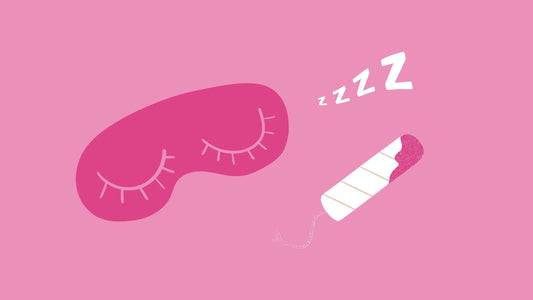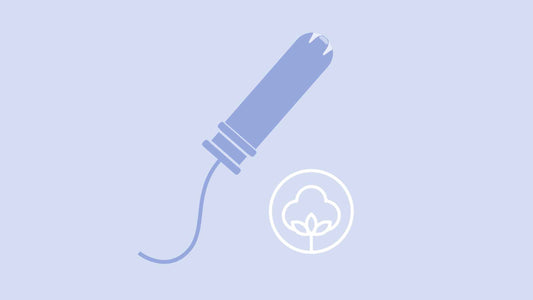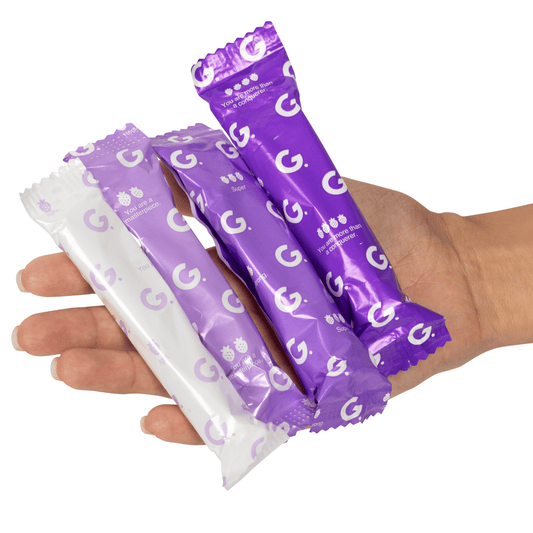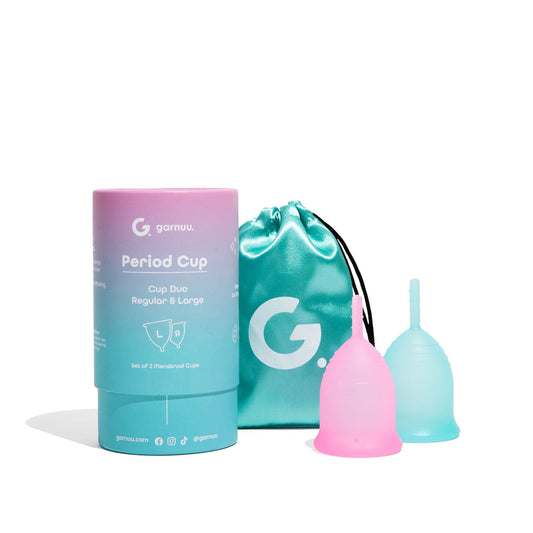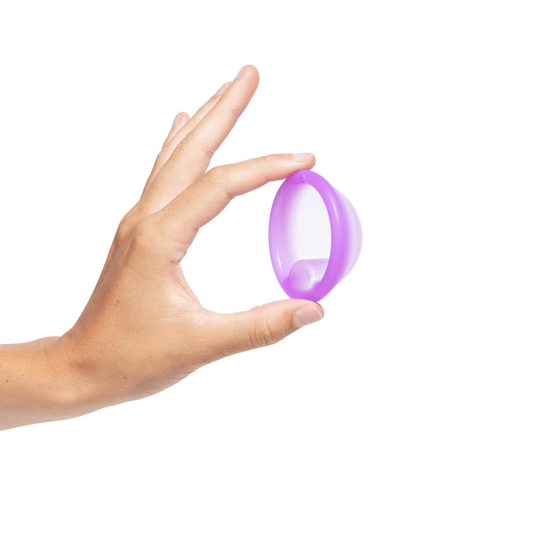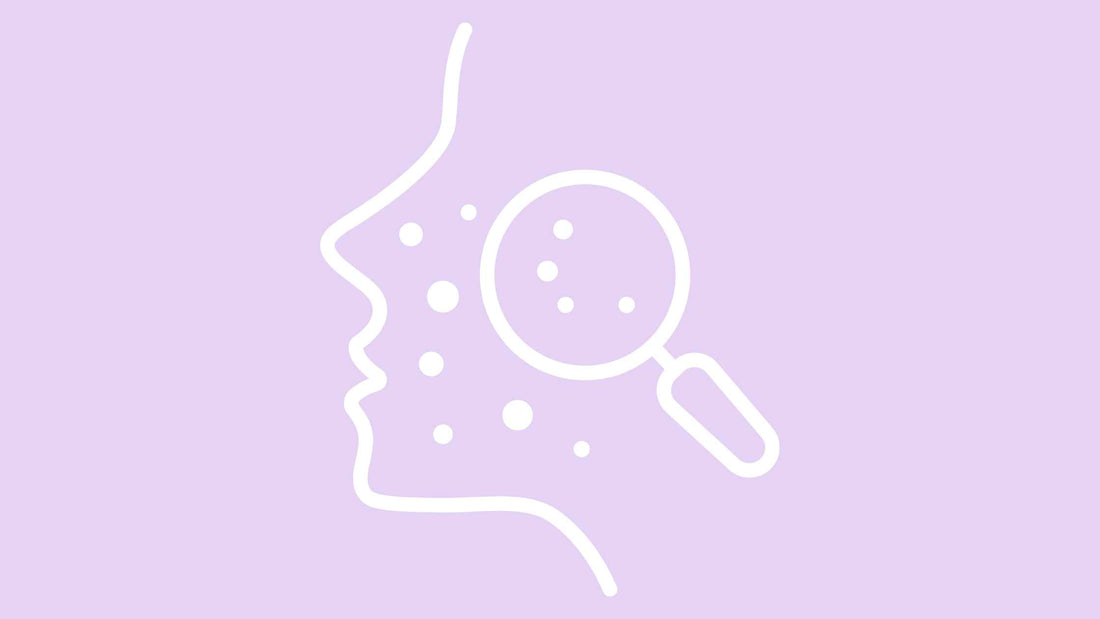
Hormonal Acne: Everything You Need to Know
Share
Do you have hormonal acne? If so, you're not alone. Many people suffer from hormonal acne, which is caused by changes in the body's hormone levels. This type of acne can be difficult to treat, but with the right information, you can manage it and keep your skin looking clear and healthy. In this blog post, we will discuss everything you need to know about hormonal acne: what causes it, where it appears on the body, and how to treat it!
What is Hormonal Acne?
Hormonal acne, which is sometimes considered adult acne, is a common recurring skin condition that affects adults between the ages of 20 and 50 years old. It especially effects women while menstruating, if they're in menopause, and if they're pregnant. Hormonal acne can also affect those going through puberty because hormone levels are actively changing. Hormonal acne has also been coined as "cyclical acne," because it occurs based on a cycle. For women who suffer from hormonal acne, this is typically the menstrual cycle.
Hormonal acne occurs when the body produces too much of the hormone sebum. Sebum is a natural oil that lubricates and waterproofs the skin. When the oil glands produce too much sebum, it can clog pores and hair follicles, which leads to blackheads and other acne.
Hormonal acne is different from the teenage acne most people experience because it's hormonal changes that trigger it, while teenage acne can be caused by many different factors, including clogged pores and new hair growth, bacteria, secretion of sex hormones, stress, picking at the skin, etc. Prevention of teenage acne can include a regimen of washing your skin every night, not picking pimples which can cause spreading of acne, and avoiding irritating products that include alcohols or abrasive scrubs.
Hormonal acne usually appears on the chin, jawline, and neck. Acne causes bumps on your face, shoulders, chest and back in the following forms:
- Pimples.
- Blackheads.
- Whiteheads.
- Cystic acne.
- Skin bumps.
- Painful inflammation.
- Mild acne or severe acne.
- Raised skin tissue.
If left untreated, it can cause skin rashes or scarring around your neck, shoulders, or chest.

What causes hormonal acne?
When there is an increase of testosterone and decrease in estrogen, the skin responds by producing more oil. Acne in general is caused by clogged pores. Hormonal acne develops when hormonal changes increase the amount of oil your skin produces. This oil interacts with bacteria on the pores of your skin where hair grows (hair follicles) and results in acne.
Clogged pores are the result of:
- Bacteria
- Dead skin cells
- Excess sebum (the oily substance created from the sebaceous glands in the middle layer of your skin)
- Hormonal changes
Hormonal acne is a direct result of the body's estrogen, progesterone, testosterone, and androgen hormone levels which are highly correlated with menstrual cycles, sex, and menstruation. The hormones are associated with hormonal acne as they are more regulated. Cortisol is a stress hormone that affects many other hormones as well.
Food choices, stress (cortisol hormone), and environmental factors can also be causes of hormonal acne.
How do you know if acne is hormonal?
One way to tell if your acne is hormonal acne is by tracking your 28-day menstrual cycle and taking note of when in the cycle you're seeing acne. Because hormones fluctuate throughout the menstrual cycle, you may see that during either the menstrual, follicular, ovulation, or luteal phase that you have more acne. If you are seeing that you always having acne flares during one or two specific phases, you likely have hormonal acne.
Learn all you need to know about your menstrual cycle here.
Some other telltale signs of hormonal acne include that you are past your teen years, acne appears predominately on your chin and jawline, you're extremely stressed out (cortisol hormone is probably out of wack), or you're dealing with large, painful cysts.
Who does hormonal acne affect?
Hormonal acne mainly affects women who are menstruating, pregnant, or entering or in menopause (also called menopausal acne). This is because during these times, there can be very drastic changes in hormones.
Men can get hormonal acne as well, though it is much less common. Testosterone levels increase during puberty, which can lead to more sebum being produced and clogged pores.
How common is hormonal acne?
Hormonal acne is very common. In fact, hormonal acne affects around 50 million people every year, so even though it can be annoying and challenging at times, remember that you ARE NOT ALONE. Approximately 54% of females are experiencing or have experienced hormonal acne.
Misconceptions about Acne Causes
Although acne is one of the largest skin conditions, it remains one that hasn't been studied as often as it should. Among the most popular misconceptions about hormonal acne are:
- You have to be a teenager to experience hormonal acne.
- Hormonal acne is only caused by changes during puberty.
- Hormonal acne is only caused by hormonal imbalances.
- You can only get hormonal acne on your face.
- You need to be going through menopause to experience hormonal acne.
All of these are myths! The fact of the matter is that anyone at any age can experience hormonal acne due to a plethora of reasons.
Hormonal acne can show up on the face, chest, back, or shoulders. Hormonal imbalances aren't the only things that can cause it—other hormonal factors like stress (cortisol), puberty, menopause, pregnancy, and polycystic ovarian syndrome (PCOS) can also be culprits.
Fungal acne vs hormonal acne?
Hormonal acne and fungal acne are often confused with each other because both types of acne start in the hair follicles. Fungal acne occurs when excess yeast develops, whereas hormonal acne is caused by excess sebum. Fungal acne can result in whiteheads, itchiness and often becomes red, irritated and inflamed. Hormonal acne is more likely to cause blackheads and whiteheads as well as cysts.
Does hormonal acne disappear?
Generally speaking, inflammatory acne is treated with treatment if the skin responds in a particular way to the atopic conditions, causing the skin to develop its characteristic inflammatory properties. In most cases, however, the chronic condition becomes progressively worse with inadequate personal attention.
How to treat Hormonal Acne Naturally?
Because hormonal acne is caused by hormones, the first step to take is to get your hormone levels tested with your doctor or dermatologist. Without knowing which hormones are out of wack, it is nearly impossible to know which step to take next in improving your hormone levels. You can get your hormones tested at any doctor's office by testing saliva, urine, or blood.
When you know which hormone imbalances you have, you can start taking steps to fix them. Simply Google, "What can I do to balance my _______ hormone?"
If you are struggling with hormonal acne, there are a few general things that you can do to help improve your hormone levels:
- Get on a regular sleep schedule
- Manage stress with yoga, meditation, or other relaxation techniques
- Eat a healthy diet full of lean protein, fruits, vegetables
Changing your diet or eliminating dairy could help reduce acne and reduce skin pigmentation in some patients. Some changes suggest that people follow dietary guidelines for health, like consuming more whole grains and avoiding sugary and refined carbohydrates. Keep in mind that scientific studies have no conclusive results on the elimination of the milk product.
Tea tree oils have shown promising clinical outcomes for acne treatment. It's included in a variety of skin care products like cleansing agents or toners. In a recent survey, tea tree has been shown to reduce skin inflammation.
Develop a skincare routine
Everybody's skin is different, so developing an appropriate skincare routine that fits your skins needs is essential! Washing and moisturizing your skin once or twice a day can help keep acne flares down by keeping the surface of the skin cleansed and moisturized. If you only want to wash your face once a day, opt for before sleeping, after a long day to wash away dirt, oil, pollution, makeup, etc.
Over-washing your face can make acne worse. If you wash your face too often, you can breakdown your skins natural barrier which allows external agents such as bacteria and irritants to cause inflammation. Your skin may try overcompensating for the dryness by producing even more oil which may cause more acne. If you have found washing your face twice a day is too much, try washing your face with water in the morning, and a cleanser at night.
When should I see a healthcare provider?
When acne doesn't disappear using natural remedies or it is causing serious pain or insecurity, you may want to consider seeing a professional for their expertise and opinion. Dermatology is generally best suited for the detection of the type of acne you have, and treatment of the type of acne you're dealing with.
Medication options for hormonal acne
Though medications can be a great option for quickly reducing acne, what they're really doing in masking the internal hormonal imbalance that's causing the acne in the first place. With that said, some common medications prescribed by dermatologists and doctors include:
- Prescription medication (topical)
- Oral medications
- Hormonal birth control pills
- Anti-androgen medication
- Accutane
- Chemical peels (facial procedure)
Accutane is an acne treatment in which you take retinoids in a pill form. This treatment should never be used if trying to become pregnant, because it can cause severe birth defects. Talk to your doctor or dermatologist to decide which option best suits your acne and skin type.
Chemical peels are also a good option short-term, and can reduce pigmentation, irritation, and other acne symptoms for a short period of time. Like explained previously, to get to the root problem, your hormones must be balanced.
Questions?
We love getting to know our Garnuu Girls, so if you have any questions or comments, we would love to hear them! Follow us on Instagram @garnuu and shoot us a direct message.
We can't wait to hear from you!
Xoxo,
Garnuu Team



